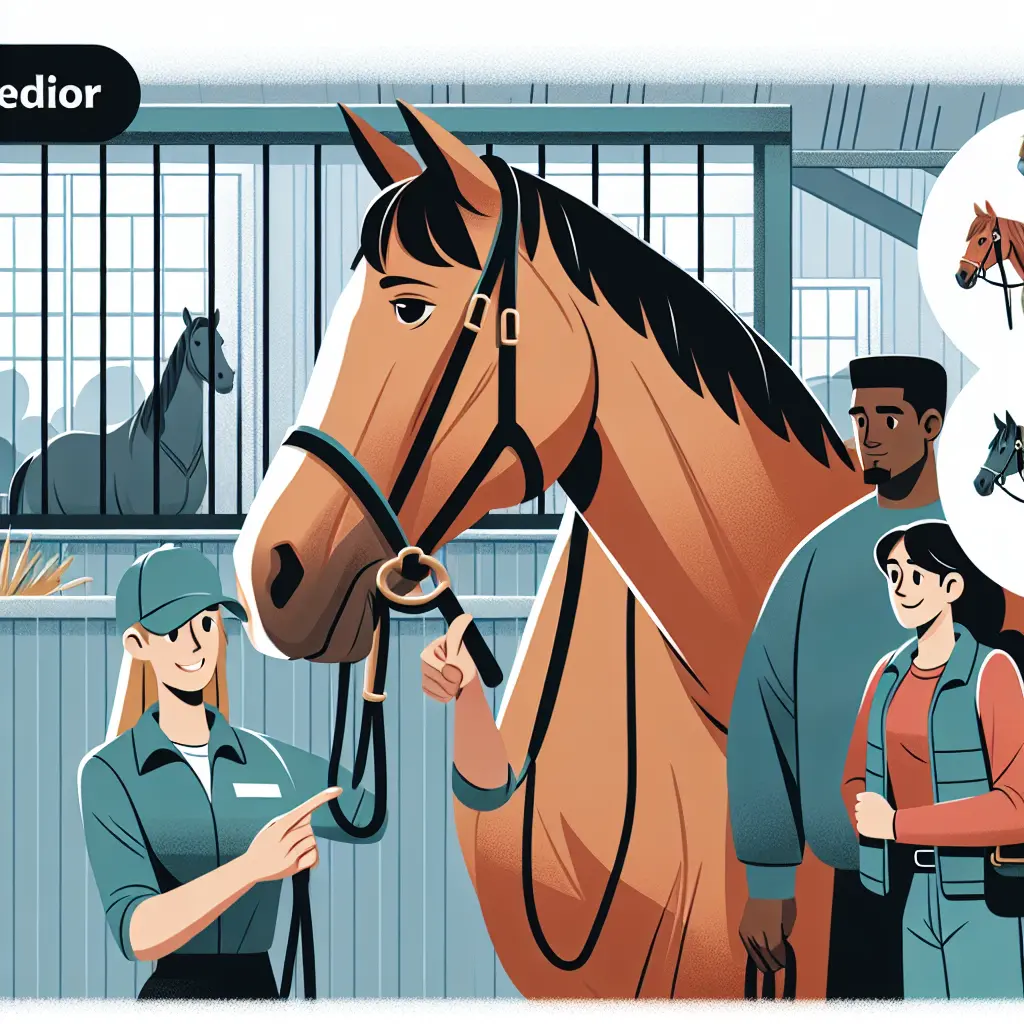Choosing the Perfect Trainer for Young Horses: Tips and Recommendations from Real Horse Owners
The world of equine training is a labyrinth of techniques and personalities. Picking the right trainer for your young horse can shape its future, influencing every aspect of its development. Let's trot through the essentials of selecting a trainer that aligns with your aspirations for your equine partner.
Understanding Your Needs

Before embarking on the quest for a trainer, it's crucial to comprehend what you need. Are you looking for someone to help with basic groundwork, or do you have more competitive aspirations? Here are a few elements to consider:
- Location: Proximity matters. While commuting for quality training is justifiable, convenience promotes consistency. If you're living in a rural area with limited options, you might need to compromise on either location or regularity. [Source]
- Experience: Experience, particularly with young horses, is non-negotiable. A seasoned trainer knows how to lay down a solid foundation for future growth. [Source]
- Budget: Mapping out financial commitments in advance can prevent future stress. Trainers' fees vary, and sometimes paying a premium ensures better long-term outcomes. [Source]
- Recommendations: The power of word-of-mouth in equestrian circles cannot be overstated. Fellow horse owners, instructors, or local horse clubs can provide invaluable insights into a trainer's reputation. [Source]
Essential Qualities of a Good Trainer

A capable trainer for young horses isn't just someone with accolades but someone embodying specific qualities:
- Patience and a Horse-Centered Approach: Young horses are like sponges, but they require time to absorb lessons. A trainer needs patience and an understanding approach towards gradual development. [Source]
- Communication Skills: It's not only about talking to the horse; effective communication with you, the owner, is equally important. [Source]
- Flexibility: No two horses come with the same instruction manual. Flexibility in training methods to suit an individual horse's personality and needs can lead to positive outcomes. [Source]
Setting Realistic Expectations
The path to shaping a young horse is a journey, not a sprint. It's essential to develop realistic expectations:
- Progression Time: Building a robust foundation is of paramount importance and should not be rushed for quick fixes. [Source]
- Mistakes and Setbacks: These are inevitable parts of learning both for the horse and the trainer. Patience is key. [Source]
Tips for Selecting the Right Trainer

Here's a selection of practical tips to pinpoint the right trainer:
- Visit the Facility: Check on the hygiene of the stables, and ensure the horses are thriving. It's an immediate reflection of care standards. [Source]
- Watch a Session: Observing a live training session can lay bare the trainer's style and interaction quality. [Source]
- Google and Verify: Cross-reference their achievements but approach online reviews with a discerning eye. [Source]
- Ask About Involvement: A collaborative trainer who includes you in the process can enhance the learning curve for both horse and owner. [Source]
Recommendations from Real Owners

Real horse owners vouch for trainers who:
- Prioritize Horse Welfare: The horse's comfort and happiness should always be at the forefront of any training regime. [Source]
- Offer Continuous Learning: Trainers like Warwick Schiller or Sean Coleman, who foster continual education in modern, horse-centered techniques, deserve consideration. [Source]
Conclusion
Choosing the right trainer is a multi-layered decision, infused with careful consideration. With an emphasis on experience, patience, and an unwavering commitment to horse welfare, you can ensure a promising future for your equine companion. Remember to trust the visual cues from facility visits, verify the trainer's credentials, and rely on recommendations from within the community. Finding a trainer who resonates with your values and goals paves the way for a successful partnership with your young horse.
At "Just Horse Riders," we have an extensive range of products to support horse training, such as the Jodhpur Collection, Horse Riding Boot Collection, and Horse Riding Gloves Collection. Visit our homepage for more information.

